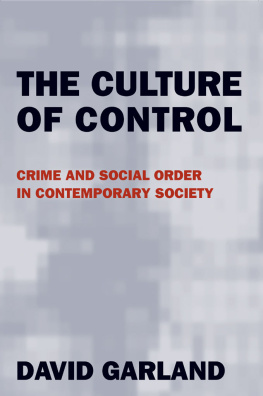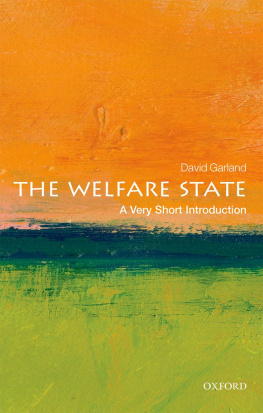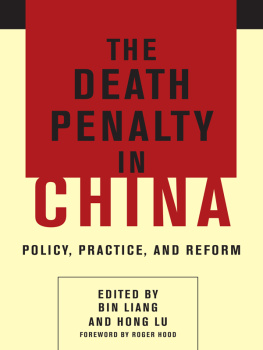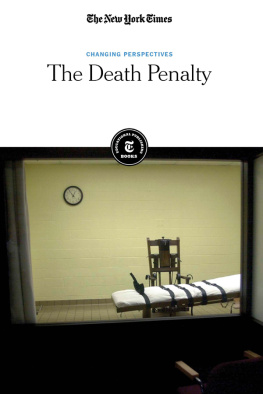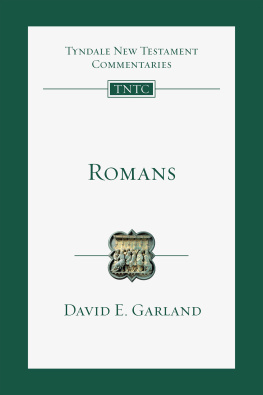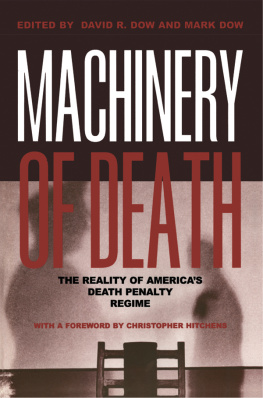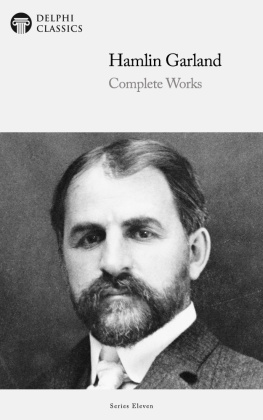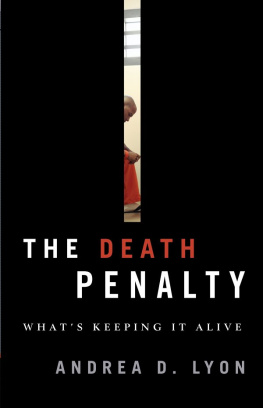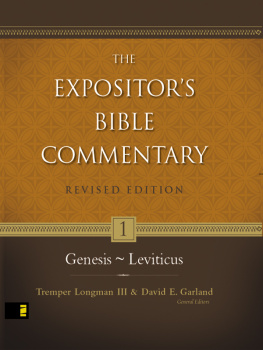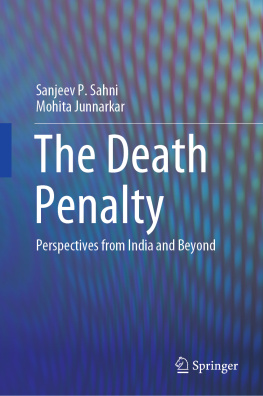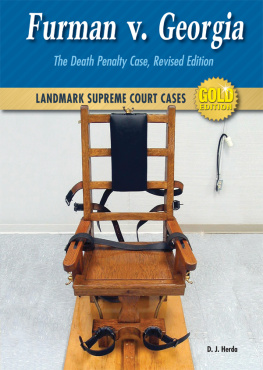Thank you for buying this ebook, published by NYU Press.
Sign up for our e-newsletters to receive information about forthcoming books, special discounts, and more!
Sign Up!
About NYU Press
A publisher of original scholarship since its founding in 1916, New York University Press Produces more than 100 new books each year, with a backlist of 3,000 titles in print. Working across the humanities and social sciences, NYU Press has award-winning lists in sociology, law, cultural and American studies, religion, American history, anthropology, politics, criminology, media and communication, literary studies, and psychology.
Americas Death Penalty
Americas Death Penalty
Between Past and Present
EDITED BY
David Garland, Randall McGowen,
and Michael Meranze
NEW YORK UNIVERSITY PRESS
New York and London
www.nyupress.org
2011 by New York University
All rights reserved
References to Internet websites (URLs) were accurate at the time of writing.
Neither the author nor New York University Press is responsible for URLs
that may have expired or changed since the manuscript was prepared.
Library of Congress Cataloging-in-Publication Data
Americas death penalty : between past and present/
edited by David Garland, Michael Meranze, and Randall McGowen.
p. cm.
Includes bibliographical references and index.
ISBN 9780814732663 (cl : alk. paper) ISBN 9780814732670
(pb : alk. paper) ISBN 9780814732809 (e-book)
1. Capital punishmentUnited States. I. Garland, David. II. Meranze, Michael.
III. McGowen, Randall.
HV8699.U5A745 2010
364.660973dc22 2010033742
New York University Press books are printed on acid-free paper,
and their binding materials are chosen for strength and durability.
We strive to use environmentally responsible suppliers and materials
to the greatest extent possible in publishing our books.
Manufactured in the United States of America
c 10 9 8 7 6 5 4 3 2 1
p 10 9 8 7 6 5 4 3 2 1
For Anthony Amsterdam and Bryan Stevenson
Contents
Randall McGowen
David Garland
Michael Meranze
Randall McGowen
Douglas Hay
Jonathan Simon
Rebecca McLennan
Acknowledgments
This book grew out of collaborative work on the relationship between capital punishment, history, and social theory that we have been developing over the past few years. On various occasions, most notably at the Law Society Association (LSA) meetings in Las Vegas in May 2005 and at a workshop at New York University (NYU) School of Law in May 2007, we drew a variety of other scholars into that discussion and greatly benefited from their ideas and advice. We take this opportunity to express our thanks.
Jonathan Simon acted as discussant at our LSA panel, and his characteristically lively and insightful reactions encouraged us to continue with our venture. Dean Ricky Revesz of New York University School of Law enabled us to develop our ideas further by agreeing to fund a two-day workshop at NYU where we were able to assemble a remarkable group of historians, sociologists, and lawyers to discuss capital punishment, past and present. We are grateful to everyone who took part in that event and whose contributions made it one of the most exciting and productive intellectual exchanges any of us can remember.
Those to whom we owe particular thanks include the contributors to the present volumeDoug Hay, Rebecca McLennan, and Jonathan Simonas well as Grace Hale, Claudio Lomnitz, Anthony Amsterdam, Lauren Benton, Craig Calhoun, Noah Feldman, Sally Gordon, David Greenberg, Dan Hulsebosch, Bryan Stevenson, James Q. Whitman, and Tom Laqueur, all of whom prepared workshop papers or commentaries and contributed to the ideas represented here.
Finally, we express our gratitude to the people at NYU Press, particularly our editor Ilene Kalish, for their ongoing support.
1 Introduction
Getting the Question Right? Ways of Thinking about the Death Penalty
RANDALL MCGOWEN
In recent years the death penalty has lost none of its power to arouse powerful emotions or to produce heated debates. Indeed, the question of capital punishment has secured greater prominence, as it has become one of the defining issues in the campaign to promote recognition of international human rights. The result has been the transformation of a debate largely taking place within national political contexts and arising mainly within Western culture into a cause that leaders of all nations feel compelled to address. Debates at the United Nations, discussions before various human rights conventions, as well as the attention of the world press have all brought a level of scrutiny of national practices that is difficult to avoid. Proponents of the abolition of the penalty assert that it violates universal human rights which transcend local traditions or circumstances. Their opponents tend to reject this claim, asserting, instead, the priority of separate and distinct national or religious identities.
Often the ethical and moral argument over capital punishment is posed as a timeless question whose fundamental shape has not, and cannot, change.on solving a distinctively American enigma. Certainly this is the overwhelming impression one draws from a casual reading of the European and North American press or, indeed, from a survey of much of the recent scholarship on the topic.
This volume emerged out of a symposium convened by David Garland, Randall McGowen, and Michael Meranze (sponsored by New York University School of Law in May 2007) that sought to look at capital punishment in historical perspective, and to think again about how we might view its occurrence in our own time. The goal was to renew the debate by unsettling some of the certainties that have helped to shape its modern formulation. Our concern was that the seeming familiarity of the controversy has become an obstacle to reaching a new understanding of the issue. The strategy we followed was to examine not only the answers offered but also the questions posed in the debate. These questions often imported historical and theoretical assumptions which framed the answers that could be given. The conference drew together historians, sociologists, and legal scholars, as well as litigators engaged in the day-to-day struggles defending the condemned on death row. The conversations that went on during the meeting were wideranging, stretching from contemporary American death penalty litigation to the practices of capital punishment in other times and places. The longer the discussions went on, the more inadequate the insistent viewpoint of the present and the often repeated tales of the past came to seem.
Much of the initial discussion was devoted to the question of American exceptionalism, the fact that the United States seems on a different path from those countries with which its citizens usually compare themselves, especially in Europe. There was no shortage of candidates to explain this apparent disparity. Several people argued that it resulted from the countrys unique judicial arrangements, and others looked to the peculiar nature of its federal system of government. There was greater consensus that the nations tortured history of race relations was implicated in the development. Other scholars pointed to the frequency of violence in the American past and its prevalence in the country today. Finally, some participants traced the roots of the fierce retributive spirit at work in American justice to a powerful streak of religious fundamentalism that distinguishes the nations culture.to life with each new formulation of the topic. The issues it raised seemed already obvious, the questions already answered. For all the heat generated, the debate seemed to repeat what was already assumed: that America was different.



